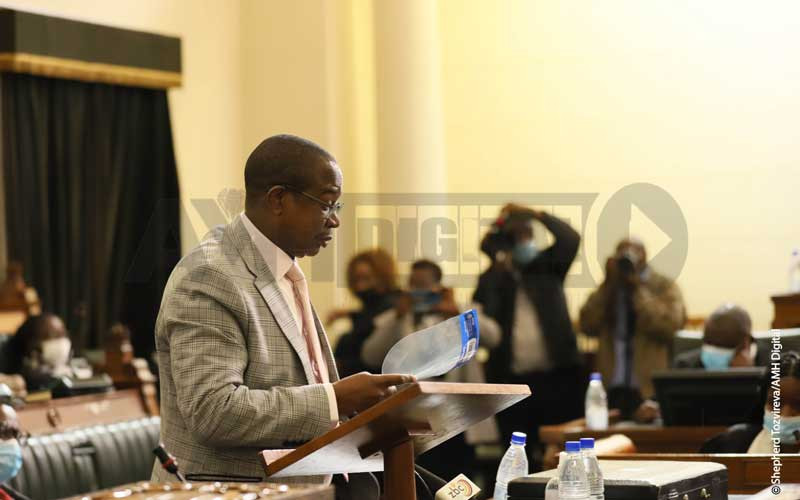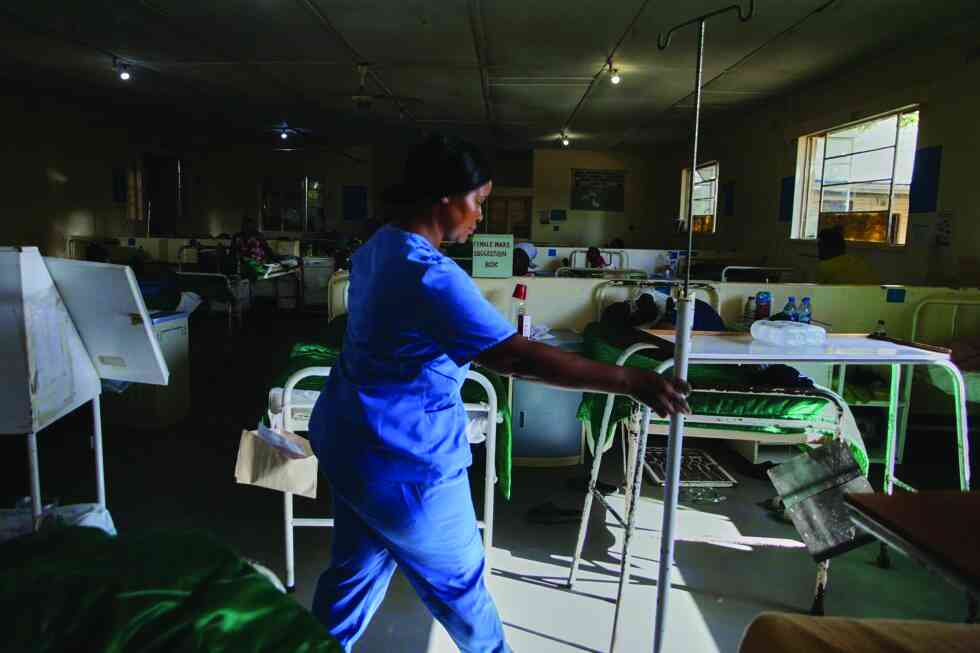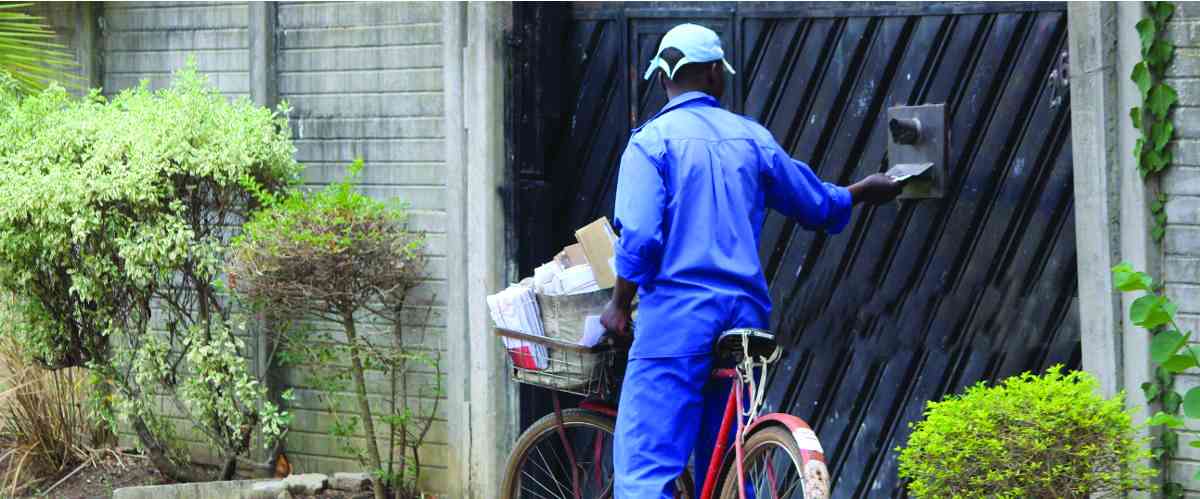
The 2023 National Budget is expected to be presented this month with government eyes solely fixed on the election campaign season and the upcoming harmonised elections in 2023. Business in government departments will grind to a halt in the next six months as reforms have already been pushed to the post-election period. Civil servants will hope to press the desperate government against the wall to get salary increments in the run up to the election. Treasury is largely expected to channel more funding (on paper) towards civil service welfare and key infrastructure projects that form a key part of the campaign messaging.
Failed inflation fight
The central bank and the government have performed dismally on managing inflation in 2022 (Perennial failure). There is a sense of submission that it is impossible for Zimbabwe to achieve single digit inflation in the foreseeable future as long as the wobbly and printable local currency is used in parallel to the US Dollar. Annual inflation started the year at 60,6% and ended the year at 268,8% against an initial target of 25-35% which was later revised to between 52% and 58%. Month-on-month inflation in January 2022 was 5,3%, rising to 30,7% in June before retreating to 3,2% in October. Annual inflation will likely end the year in the triple-digit zone between 280-300% on the back of expected growth in broad money supply from this November onwards. The government is expected to pour billions of Zimbabwean dollars to support agricultural subsidies for over three million farmers (mainly the rural electorate), while the central bank has to pay back the Negotiable Certificate of Deposits (NCDs) that are being issued to banks to manage money supply growth. Similarly, growth in exports means that the central bank needs to print more money to credit exporters’ accounts with a local currency for retained foreign currency earnings.
2022 budget proposals
For 2022, the government projected to spend no more than ZW$968,3 billion (roughly US$4,6 billion using the market rate then) which was roughly 20% of gross domestic product (GDP). Revenues projections were set at ZW$850,8 billion, resulting in a budget deficit of ZW$117,5 billion which was to be funded through domestic borrowings. On paper, Agriculture (ZW$124bn), Primary and Secondary Education (ZW$124bn) and Health (ZW$118bn) got the most votes even though actual allocations favour defence and security departments. In the 2022 budget, the capital budget was ZWL$334,2 billion with ZWL$156,4 billion dedicated to infrastructure.
Inflation bite
With inflation biting, a supplementary budget was presented in July 2022. The Treasury proposed additional spending of ZWL$929 billion with 53% of the amount going towards salaries and 19% going to capital projects. Thus, the total expenditure for 2022 eclipsed ZW$1,898 trillion highlighting the devastating impact of price increases. With inflation expected to trek upwards of 300% in the first half of 2023, the government will need several trillions to keep public services running at the prevailing bare minimum.
Actual performance
- Interview: ‘Zim committed to tackling climate change’
- Finance minister reminded of PWDs
- ‘Zim needs infrastructure overhaul’
- Business sector plagued by uncertainty
Keep Reading
From January to June 2022, the government collected revenue of Z$506,6 billion and spent Z$534,5 billion. This left a budget deficit of Z$27,9 billion, against a target deficit of Z$45 billion. The Treasury expected the economy to register a 7,8% growth rate with the International Monetary Fund (IMF) projecting a 5,1% growth. By September 2022, IMF had revised the target to 3,5% in line with the World Bank while the government moderated its expectations to 4,6%.
2022 tax relief measures
In the July 2022 supplementary budget, the tax-free threshold on local currency remuneration was increased from ZW$300 000 to ZW$600 000 per annum and there was an adjustment on tax bands to end at ZW$12 million from the current ZW$6 million per annum, above which tax is levied at a rate of 40%, with effect from August 1 2022. The bonus tax-free threshold on local currency was increased from ZW$100 000 to ZW$500 000 with effect fromNovember 1 2022.
New mining royalties law
The government has implemented a policy to collect half of the mining royalties due to treasury in physical minerals, instead of foreign currency as has been the case for the past decades under local regulations. The new rule only affects royalties from diamond, gold, lithium and platinum which fetch high prices on the world market.
Mining royalties earned the county ZW$3,7 billion (3% of government revenues) in 2021 with the bulk emanating from the targeted precious minerals which fetch high prices on the world market. The government has been experiencing challenges to collect tax revenues and meet public service (core duty of the government) deliverables due to lack of funds.
Therefore, it remains to be seen how the government plans to plug the hole left by taxes paid in hard currency in favour of stones that will be kept in local vaults. Furthermore, the opportunity cost of such a policy will become clearer as time goes on. Minerals are finite assets, hence royalties should be utilised to build capital or other assets to benefit the nation in future. Hence, it is not productive for the government to use mining royalties to pay for recurring costs such as salaries, luxury vehicle imports or fund travel expenditure for government officials. In other countries, royalties are used to build sovereign wealth funds and investments in gross capital formation.
Unresolved civil service salaries
Morale remains extremely low among the civil servants with serious brain drain happening in critical sectors such as healthcare and education. The government recently reviewed salaries and allowances by about 90% and 30% respectively for the lowest paid government employee. The salary increment means that the lowest paid civil servant (B1 grade) is paid ZW$70 000. Covid-19 incentives and allowances went up to US$200 from US$175. Civil servants are demanding a pre-October 2018 salary level of US$540 a month pointing that their low salaries no longer match the rising cost of living.
There is now an urgent need to utilise foreign currency tax revenues which are estimated at over US$1,7 billion for 2022 to award civil servants and pensioners a decent living wage that is in sync with the actual cost of living (as measured by the Zimstat).
The low morale in the civil service is affecting service delivery across all government departments and is entrenching a dangerous culture of corruption in the economy. The culture has become so endemic that entirely every public service rendered in government departments requires a bribe.
IMMT review
The Intermediated Money Transfer Tax (IMTT) is a transaction tax accrued at various levels by businesses. Since the tax is also levied on formal businesses that pay corporate tax, the budget should make the transaction tax be deductible from corporate tax or Value Added Tax (VAT) as is the case with other transaction taxes. This will provide relief to all hard-pressed tax compliant businesses.
Debt management
As at end of June 2022, public and publicly guaranteed debt stood at ZW$1,3 trillion and US$13,2 billion, composed of domestic and external debt, respectively. However, there is no clarity on the debt contracted by the central bank to finance the auction system and other quasi-fiscal operations in the last three years.
The above debt does not involve the US$3,5 billion owed to former commercial farmers under the Global Compensation Deed or central banks debt. It is now overdue for the Treasury to present a debt repayment plan for the benefit of the taxpayer. Similarly, there is an urgent need for a debt repayment plan on the central bank blocked funds debt of US$3,3 billion.
The debt is affecting raw material imports and new lines of credit. Zimbabwe has not tabled any credible debt repayment plan since the Lima agreement fell through in 2019. Overall, the upcoming budget needs to break away from the past budgets where more taxes are loaded on the taxpayer while billions are allocated to military expenditure at the expense of critical services such as education and health care. The war in Ukraine, increase in commodity prices, increase in imported inflation and the increase in the cost of living calls for economic stimulus through tax cuts and various other supply side policies aimed at reducing the cost of doing business in the country.
Zimbabwe’s tax model needs to be simplified and remodelled to boost exports and local production instead of maintaining policies that make it easy to import or smuggle finished goods from China, Singapore, Zambia, and South Africa. Public service delivery can only be efficient if civil servants are rewarded with living wages that are adjusted in line with inflation and increase in revenue collections by the treasury.
Bhoroma is an economic analyst and holds an MBA from the University of Zimbabwe. — [email protected] or Twitter: @VictorBhoroma1.











